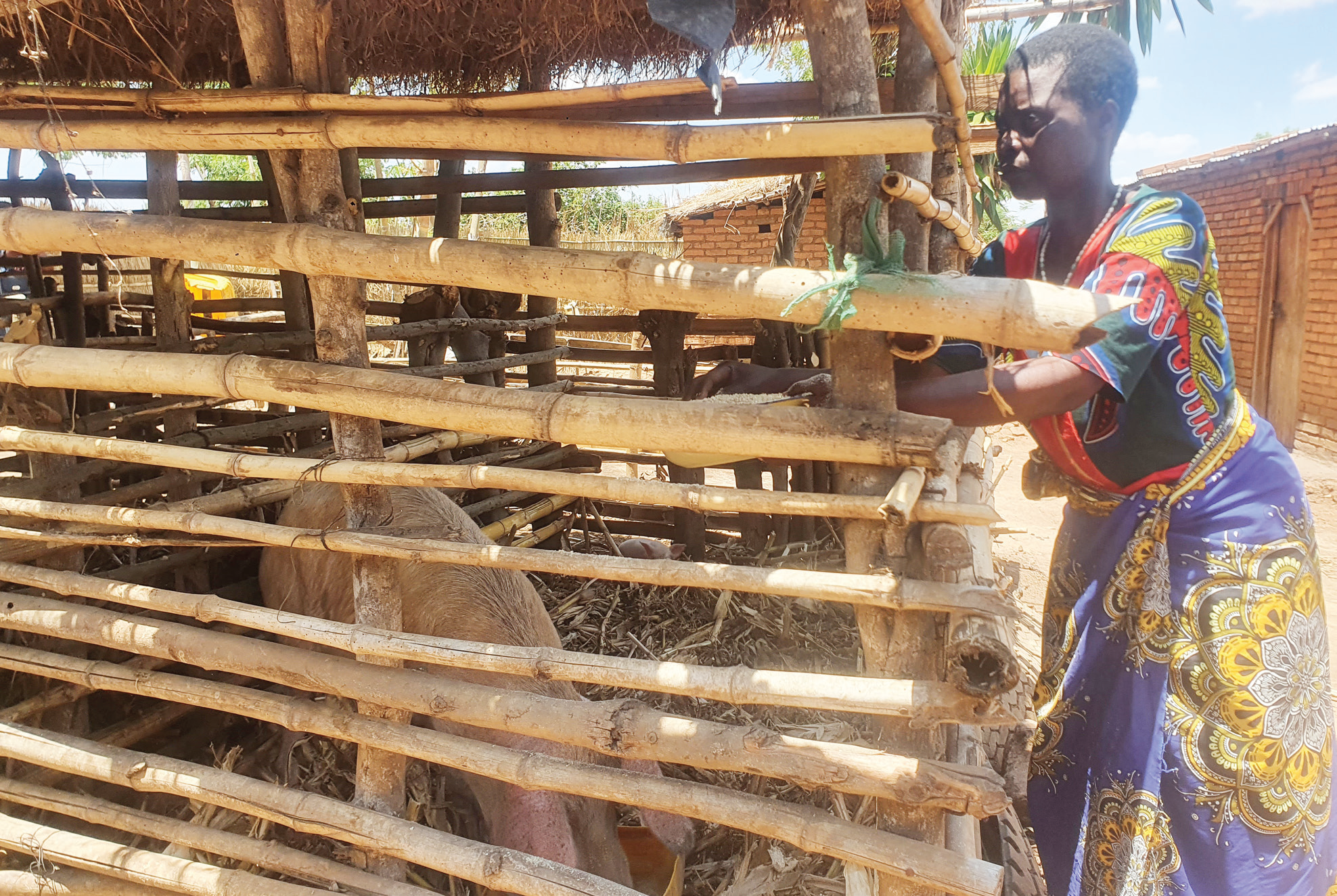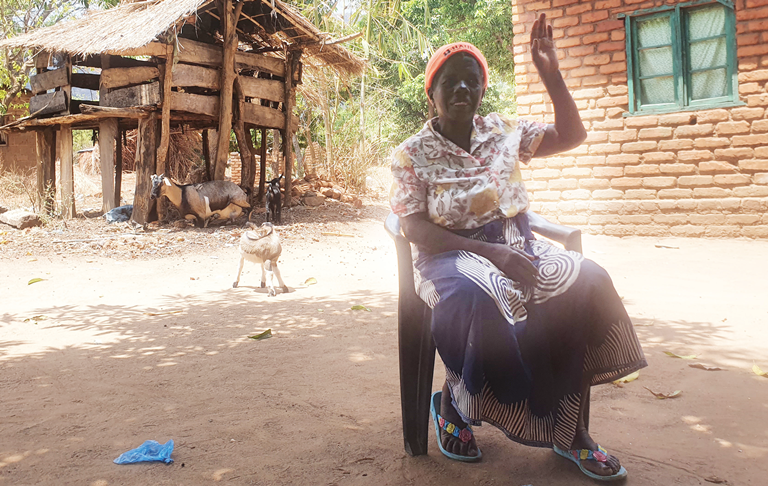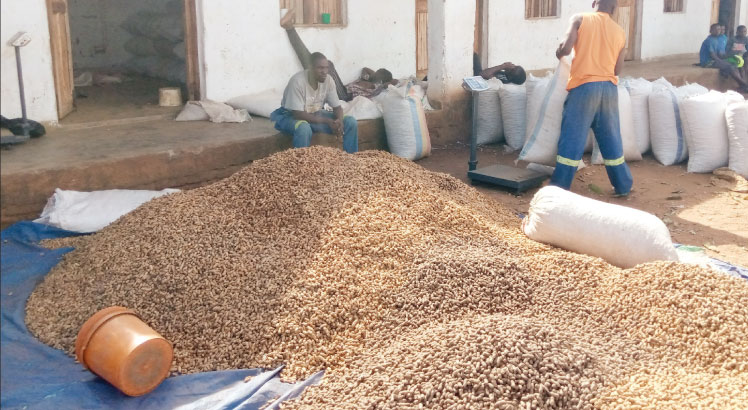Ultra-poor livelihoods set to improve
Anne Chimwenje, 41, from Mbalame Village, Traditional Authority (T/A) Kaphuka in Dedza was one of the poorest people in that district who formed part of the 25 percent of the country’s population living in extreme poverty.
The Southern African Regional Poverty Network defines poverty as a state of continuous deprivation or a lack of the basic things of life, and the mother of three explains that they lived in a grass-thatched house, lacked food and could hardly afford to send the children to school, the only hope for a better future for them to escape the cycle of poverty.

But by and by, she managed to send her children to school and one of them has just sat the Malawi School Certificate of Education examinations at Mkomera Secondary School, which would otherwise have been hard for her if it were not for the Social Cash Transfer Programme (SCTP).
She adds that they were also trained by Community Savings and Investment Promotion (Comsip) to form village savings and loans (VSL) groups and save part of the money they receive from SCTP while doing small-scale businesses.
Comsip also offered them pigs and has added some goats. With funds realised from livestock sales, group savings and SCTP, she has built a better house.
Additionally, Chimwenje has recovered from mental illness because once enlisted, the money not only helped her to meet some of her household needs but also used it for transport to seek medical assistance for her health problem.
“As I got better, I started using the money for household needs. We used to lack food, but little by little we began having enough,” she says.
The story is the same for 71-year-old Simfoloza Eliasi from Mganga Village, T/A Kachindamoto in the same district, who with her level of poverty would eat nsima made from maize bran.

She narrates: “We had no food. We would eat bran and for relish we used some leaves plucked from the bush. I could not even afford soap; I had no kitchen utensils and our house was grass-thatched, with one side falling.”
But equally, her tides have turned and she will soon be a landlord.
She says: “The first time I received the money I bought plates, a pail, a pot and a mat to sleep on. I initially did not have all these. With the subsequent funds, I hired people to mold bricks.
“Then I started buying iron sheets little by little and then built a new house. Now with our house completed, I am building another one which I will put up for rent.”
Just like Chimwenje, her children were not going to school and had no better clothes.
But with SCTP and Comsip’s helping hand, some have completed their studies and now one is teaching in Lilongwe’s Area 25.
The widow explains: “Comsip trained us to do small-scale businesses and to form VSL groups. They also distributed livestock to help us financially and in our nutritional needs.
“I received four pigs, three females and a male, and I later bought some goats. All of these, coupled with my beer brewing business are keeping me going. My life is no longer the same.”
For these and many others, livelihoods have improved. They are among the over 290 000 ultra-poor and labour constrained households across the country that receive cash transfers aimed at improving household food security among other things.
SCTP is also looking to improve school enrolment as well as promoting the accumulation of productive household assets, which most of the beneficiary households have so far achieved.
With support from different development partners, including KFW, World Bank, Irish Aid, European and United Nations Children’s Fund, among others, National Local Government Finance Committee (NLGFC) provides resources to district councils to implement the programme.
In an interview, NLGFC community-driven development specialist Stanley Chuthi was pleased with the improved livelihoods of the poor and vulnerable people.
“It is clear from our evaluation studies that since we started the SCTP, the vulnerable have changed their status, with most of them being food secure and others have accumulated assets to the point that their livelihoods have changed.
He says: “Malawi government has the Malawi National Social Support Policy and one of the pillars of that policy is consumption support to the poor and vulnerable.
As such, the government implements programs such as SCTP aimed at addressing that need.”
On his part, Comsip projects coordinator (South) Emmanuel Muwamba said in a written response that Comsip’s Livelihood Support Programme provides an economic inclusion package to selected SCTP and Climate Smart Public Works Programme beneficiary households in selected districts.
He says: “The livelihood package seeks to complement the consumption support provided through the SCTP through a ‘cash plus’ model aimed at instilling the culture of savings and investment through a mind-set change approach, which helps beneficiary households to grow savings that eventually cushion them in times of shocks.”
Currently, the cash transfers are offered to 10 percent of the ultra-poor and labour constrained households in the country.
Ministry of Gender, Community Development and Social Welfare deputy director of social welfare responsible for Mtukula Pakhomo Laurent Kansinjiro says that there are chances of scaling up the number of SCTP beneficiaries.
“We aspire to increase coverage and reach of cash transfers to cover more deserving poor and vulnerable.
“Our aim is at least move from current 10 percent to 15 percent,” he says.
There are also plans to migrate from manual to electronic payments of transfers to beneficiaries, as currently only two out of 28 districts pay using mobile banking.
“We are working on making sure that by end of 2022, all 28 districts will be paying beneficiaries through e-payment modalities,” says Kansinjiro.





